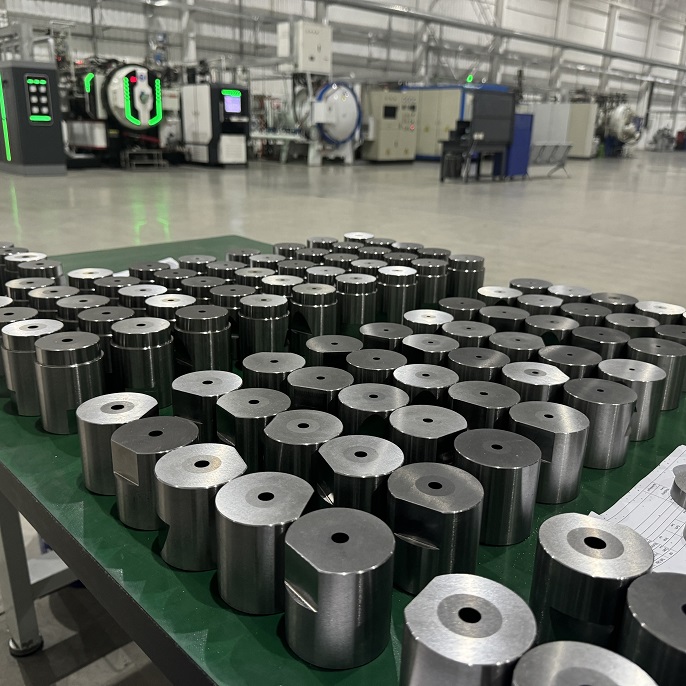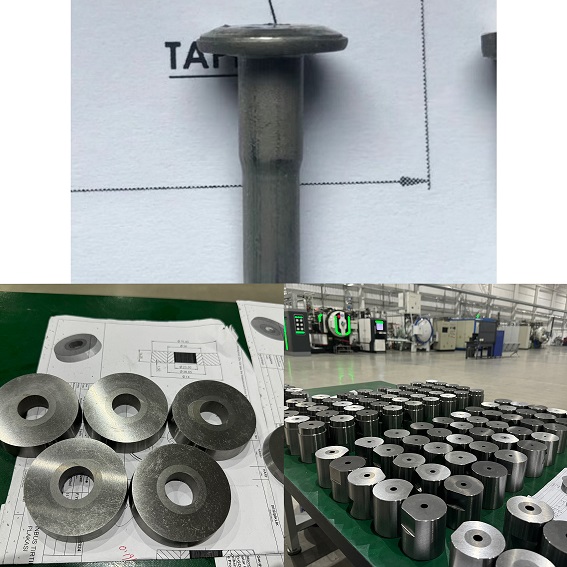Tungsten carbide cold heading dies are widely recognized as the preferred choice for producing screw fasteners, and for good reason. The unique properties of tungsten carbide make it an ideal material for manufacturing high-quality and precise screw fasteners. In this article, we will explore the reasons why tungsten carbide molds are more suitable for producing screw fasteners.
Tungsten carbide is a hard and dense material that is highly resistant to wear and abrasion. This makes it an excellent choice for cold heading dies, which are used to form the heads of screws and other fasteners. The hardness of tungsten carbide allows it to withstand the high pressures and forces involved in the cold heading process, ensuring that the resulting screw fasteners are of the highest quality and accuracy.
One of the key advantages of using tungsten carbide cold heading dies for producing screw fasteners is their exceptional durability. Tungsten carbide is known for its long-lasting performance and resistance to wear, which means that the dies can maintain their precision and dimensional accuracy over a prolonged period of use. This durability is essential for ensuring consistent and reliable production of screw fasteners, especially in high-volume manufacturing environments.
In addition to its durability, tungsten carbide also offers superior thermal conductivity, which is crucial for the cold heading process. During cold heading, the dies are subjected to high levels of heat and pressure as they shape the metal blanks into the desired fastener shapes. Tungsten carbide’s excellent thermal conductivity allows for efficient heat dissipation, preventing overheating and ensuring the integrity of the dies during the production process.
Furthermore, tungsten carbide cold heading dies exhibit exceptional resistance to adhesive and abrasive wear, which are common challenges in the production of screw fasteners. The high surface hardness of tungsten carbide prevents galling and sticking of the metal blanks to the dies, resulting in smooth and precise forming of the fastener heads. This resistance to wear also contributes to the extended lifespan of the dies, reducing the need for frequent replacements and maintenance.
Another significant advantage of using tungsten carbide molds for producing screw fasteners is their ability to maintain tight tolerances and high levels of precision. The hardness and rigidity of tungsten carbide ensure that the dies can accurately shape the metal blanks into consistent and uniform fastener heads, meeting the stringent quality standards required for various industrial applications.
In conclusion, tungsten carbide cold heading dies are the preferred choice for producing screw fasteners due to their exceptional durability, thermal conductivity, resistance to wear, and ability to maintain tight tolerances. These properties make tungsten carbide molds the ideal solution for achieving high-quality and precise screw fasteners, meeting the demands of diverse industries such as automotive, construction, and aerospace. By leveraging the unique advantages of tungsten carbide, manufacturers can ensure efficient and reliable production of screw fasteners that meet the highest standards of performance and reliability.
Post time: Aug-03-2024











